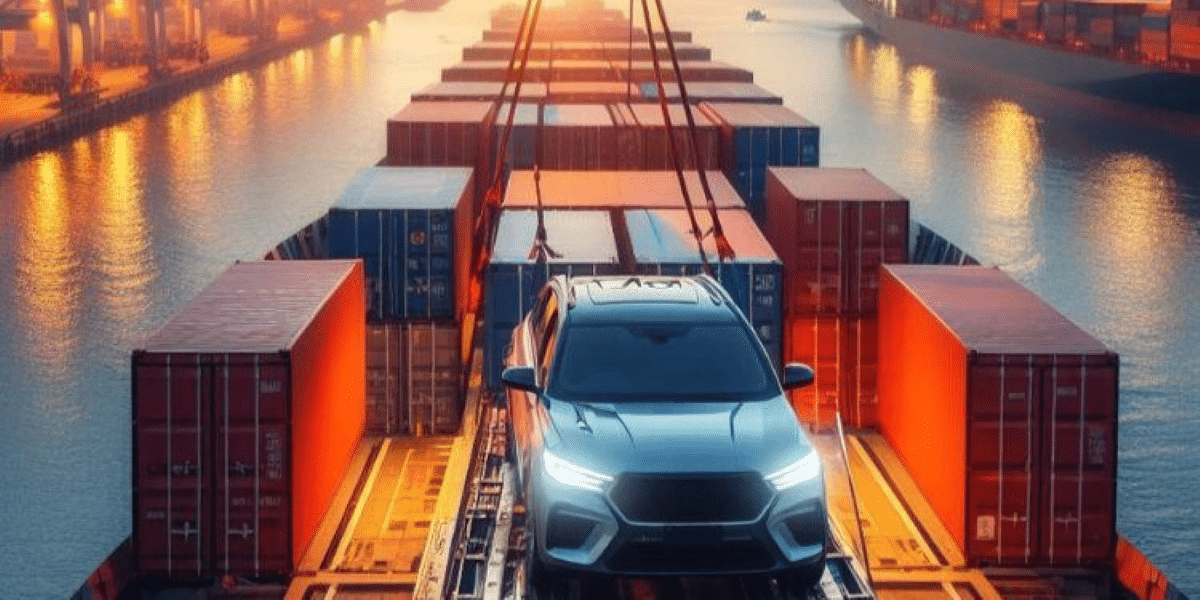In the intricate web of shipping logistics, the choice of vehicles plays a pivotal role in ensuring the smooth and efficient transportation of goods from point A to point B. Whether it’s navigating narrow city streets or traversing vast stretches of highways, selecting the right vehicle type and size is paramount for optimizing logistics operations. Let’s delve deeper into the significance of vehicle selection and its impact on shipping logistics.
Understanding the Terrain: Tailoring Vehicles to Specific Environments
One of the primary considerations in selecting vehicles for shipping logistics is understanding the unique terrain and environment in which they will operate. Urban areas with congested streets and tight spaces necessitate the use of smaller vehicles such as vans or compact trucks.
These vehicles offer greater maneuverability and accessibility, allowing them to navigate through narrow alleys and congested traffic with ease.
Conversely, in rural or remote areas characterized by rugged terrain and unpaved roads, larger vehicles such as trucks or specialized off-road vehicles are often required. These vehicles are equipped with robust suspension systems and powerful engines capable of tackling challenging terrain while ensuring the safe and timely delivery of goods.
Maximizing Payload Capacity: Balancing Size and Cargo Volume
Another crucial aspect of vehicle selection in shipping logistics is maximizing payload capacity while balancing size and cargo volume. Larger vehicles typically offer greater cargo space and carrying capacity, allowing for the transportation of larger quantities of goods in a single trip. However, larger vehicles also come with higher operating costs, including fuel consumption and maintenance expenses.
On the other hand, smaller vehicles may have limited cargo space but are more fuel-efficient and cost-effective for transporting smaller loads over shorter distances. By carefully assessing the volume and weight of the cargo being transported, logistics companies can optimize their vehicle selection to maximize efficiency and minimize costs.
Specialized Needs: Tailoring Vehicles to Specific Industries
Different industries have unique transportation requirements, necessitating the use of specialized vehicles tailored to their specific needs. For example, the transportation of perishable goods such as food or pharmaceuticals requires refrigerated vehicles equipped with temperature-controlled compartments to maintain the integrity and freshness of the cargo.
Similarly, industries that deal with oversized or irregularly shaped cargo, such as construction or manufacturing, may require the use of flatbed trucks or specialized trailers capable of accommodating large or unconventional loads. By investing in specialized vehicles that cater to their unique requirements, companies can ensure the safe and efficient transportation of goods while minimizing the risk of damage or spoilage. Learn more: https://www.a1autotransport.com
Embracing Innovation: The Rise of Electric and Autonomous Vehicles
As technology continues to advance, the landscape of shipping logistics is evolving with the emergence of electric and autonomous vehicles. Electric vehicles offer numerous benefits, including reduced emissions, lower operating costs, and enhanced sustainability. With the growing emphasis on environmental conservation and carbon footprint reduction, many logistics companies are incorporating electric vehicles into their fleets to minimize their environmental impact.
Autonomous vehicles, equipped with advanced sensors and artificial intelligence algorithms, have the potential to revolutionize the field of shipping logistics by enabling fully automated transportation operations. While still in the early stages of development and deployment, autonomous vehicles hold the promise of improving safety, efficiency, and reliability in logistics operations by eliminating human error and optimizing route planning and navigation.
Harnessing Data: Leveraging Analytics for Optimal Vehicle Selection
In today’s data-driven world, the importance of analytics in logistics cannot be overstated. By harnessing data analytics and predictive modeling, logistics companies can gain valuable insights into factors such as traffic patterns, weather conditions, and demand fluctuations. These insights enable more informed decisions when selecting vehicles for shipping logistics, allowing companies to optimize routes, minimize delivery times, and reduce operational costs.
Environmental Considerations: Promoting Sustainability in Vehicle Selection
With increasing concerns about environmental sustainability, logistics companies are increasingly prioritizing eco-friendly vehicle options. Electric and hybrid vehicles offer reduced emissions and lower carbon footprints compared to traditional gasoline or diesel-powered vehicles. By incorporating electric and hybrid vehicles into their fleets, logistics companies can not only reduce their environmental impact but also benefit from government incentives and tax breaks aimed at promoting green transportation initiatives.
Future Trends: Anticipating Developments in Vehicle Technology
Looking ahead, the future of vehicle selection in shipping logistics is ripe with innovation and technological advancements. From the rise of hydrogen-powered vehicles to the integration of drone delivery systems, the landscape of logistics is constantly evolving. Keeping abreast of emerging trends and developments in vehicle technology is essential for staying competitive in the ever-changing logistics industry. By embracing innovation and staying ahead of the curve, logistics companies can position themselves for success in the dynamic world of shipping logistics.
Last-Mile Solutions: Optimizing Vehicle Selection for Final Delivery
The last mile of delivery presents unique challenges and opportunities in vehicle selection. To efficiently navigate urban environments and reach final destinations, logistics companies are exploring innovative last-mile solutions such as electric bicycles, scooters, and autonomous delivery robots. These smaller, agile vehicles are well-suited for navigating crowded streets and pedestrian areas, enabling faster and more cost-effective delivery options for customers.
Regulatory Compliance: Adapting to Changing Transportation Regulations
Regulatory compliance is a crucial consideration in vehicle selection for shipping logistics. As transportation regulations evolve to address safety, emissions, and efficiency standards, logistics companies must adapt their vehicle fleets accordingly. Staying abreast of regulatory changes and ensuring compliance with local, national, and international transportation laws is essential for avoiding penalties, maintaining operational efficiency, and upholding corporate responsibility.
Customer Preferences: Aligning Vehicle Selection with Consumer Expectations
In an era of heightened customer expectations, vehicle selection in shipping logistics must align with consumer preferences for convenience, speed, and sustainability. Offering flexible delivery options, such as same-day or next-day delivery, requires logistics companies to deploy vehicles capable of rapid response and efficient route optimization. Additionally, incorporating eco-friendly vehicles and delivery methods resonates with environmentally conscious consumers, enhancing brand reputation and customer loyalty.
In the dynamic world of shipping logistics, the role of vehicle types and sizes cannot be overstated. From navigating urban jungles to traversing rugged landscapes, selecting the right vehicle is essential for optimizing logistics operations and ensuring the timely and efficient delivery of goods. By understanding the terrain, maximizing payload capacity, addressing specialized needs, and embracing innovation, logistics companies can stay ahead of the curve and navigate the road ahead with confidence.
Published by: Martin De Juan










